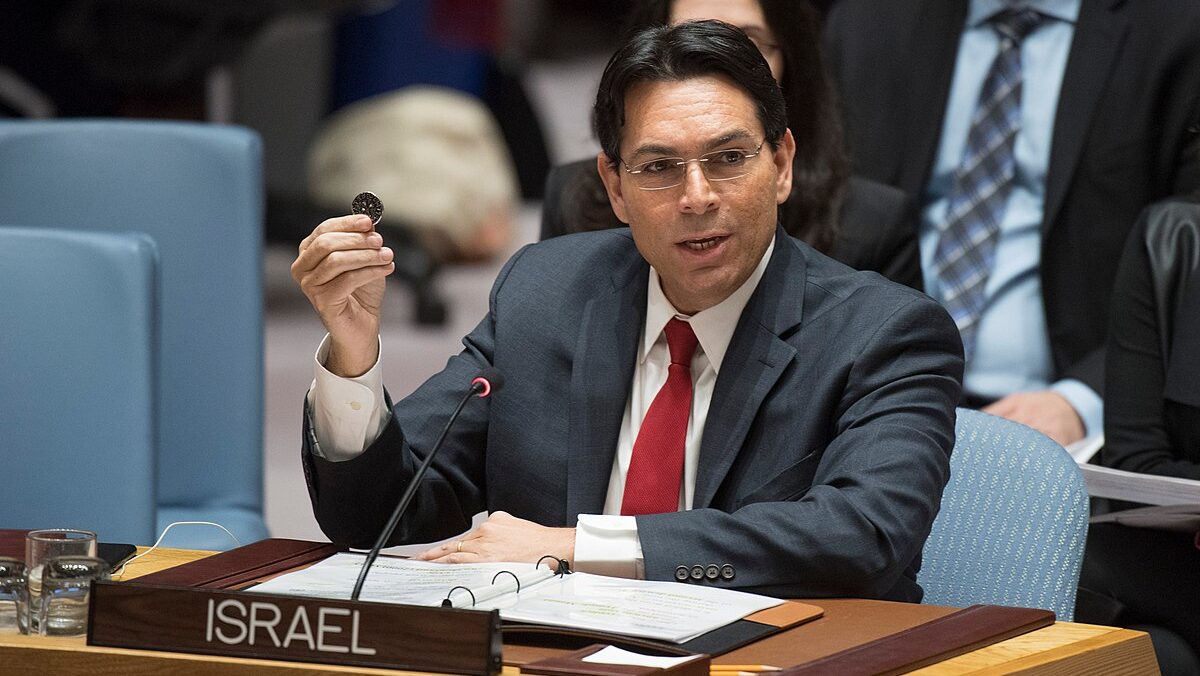International Diplomats Meet at Knesset To Discuss Postwar Strategies for Gaza
Representatives of over 40 countries who attended a roundtable conference about "the day after" in Gaza expressed support for helping to reconstruct it and make it a better place for its citizens, free of terrorist organizations
Representatives of more than 40 countries discussed postwar strategies for the Gaza Strip at a roundtable conference at the Knesset, Israel’s parliament, on Wednesday.
Titled “Gaza: Vision for the Day After the War,” the event was hosted by Danny Danon, a former Israeli ambassador to the United Nations and a leading figure in the Likud party, and Ram Ben Barak, a former deputy director of the Mossad intelligence agency and a leading member of the opposition Yesh Atid party.
The challenge will be to oust the hate and incitement from the education system. That will be the challenge, and I think that the international community must play a vital role in this part.
At the event, Danon laid out a five-point plan that he said should be acceptable to most Israelis. The plan calls for the demilitarization of Gaza, a security buffer zone along the border, Israeli security at the Rafah border crossing to conduct inspections, allowing voluntary emigration by Gazans who wish to leave to countries willing to take them, and the ideological, as well as physical, reconstruction of Gaza.
“The challenge will be to oust the hate and incitement from the education system. That will be the challenge, and I think that the international community must play a vital role in this part,” Danon said.
Most of the international representatives condemned Hamas’ atrocities and expressed willingness to assist in reconstructing Gaza and transforming it into a better place for its citizens, as well as freeing it of any terrorist organization. The event was attended by diplomats from Brazil, Denmark, France, Germany, India, Italy, Kosovo, Latvia, Lithuania, Peru, Poland, Rwanda, South Sudan, Taiwan, Thailand, Vietnam, and Zambia, among others.
“We all hear about ‘the day after,’ what the future will be in Gaza. And we are going to have a discussion with different ambassadors from different countries to think about alternatives,” Danon told The Media Line ahead of the event.
Give the gift of hope
We practice what we preach:
accurate, fearless journalism. But we can't do it alone.
- On the ground in Gaza, Syria, Israel, Egypt, Pakistan, and more
- Our program trained more than 100 journalists
- Calling out fake news and reporting real facts
- On the ground in Gaza, Syria, Israel, Egypt, Pakistan, and more
- Our program trained more than 100 journalists
- Calling out fake news and reporting real facts
Join us.
Support The Media Line. Save democracy.


He stressed that Israel must first make sure that the hostages still captive in Gaza are returned and that Hamas is eradicated.
“Then we can discuss the future of Gaza. We are open-minded about it. We don’t want to stay in Gaza, but at the same time, we will not allow Hamas to rebuild its force in Gaza,” he said.
Italian Ambassador to Israel Sergio Barbanti told The Media Line that he appreciated the invitation to this discussion.
“This is a very important signal for us, to see that there is unity in parliament on working together in order to imagine a future solution for Gaza, because, I mean, these are tragic times,” he said. “I think we should all be aware that the atrocities of the 7th of October; they are still going on. There are hostages being kept in Gaza in atrocious conditions.”
Romanian Ambassador to Israel Radu Ioanid said his country could play a role in helping to re-educate children in Gaza.
To help Gaza means to help the Palestinians in Gaza who are victims of Hamas. It also means to help Israel to feel safe and to live peacefully with a neighbor.
“I think that Romania, because of its good relationship with the Palestinian entity and Arab countries, could contribute to the education of a new generation in Gaza and in the West Bank which would be free of anti-Semitism and anti-Zionist prejudice,” he told The Media Line.
Barbanti said that participating in the reconstruction of Gaza would be important on many levels.
“To help Gaza means to help the Palestinians in Gaza who are victims of Hamas,” he said. “It also means to help Israel to feel safe and to live peacefully with a neighbor. I hope that in the future this is going to be within a two-state solution. It will help also the whole region to be able to go on with the process of normalization.”
Danon said that Israel had been “very close” to signing an agreement with Saudi Arabia before Oct. 7, and “I think it will happen in the future.”
He also stressed the importance of the participation of moderate Arab countries in Gaza’s future.
“I think it is very important that the moderate Arab nations will be involved and will support any process, and we would like to take those radical elements out of Gaza,” he said.

